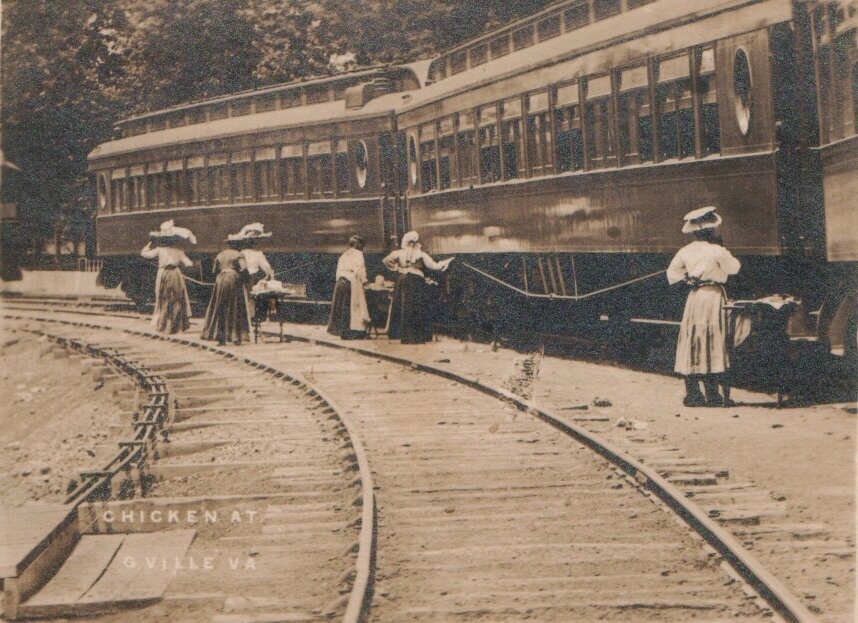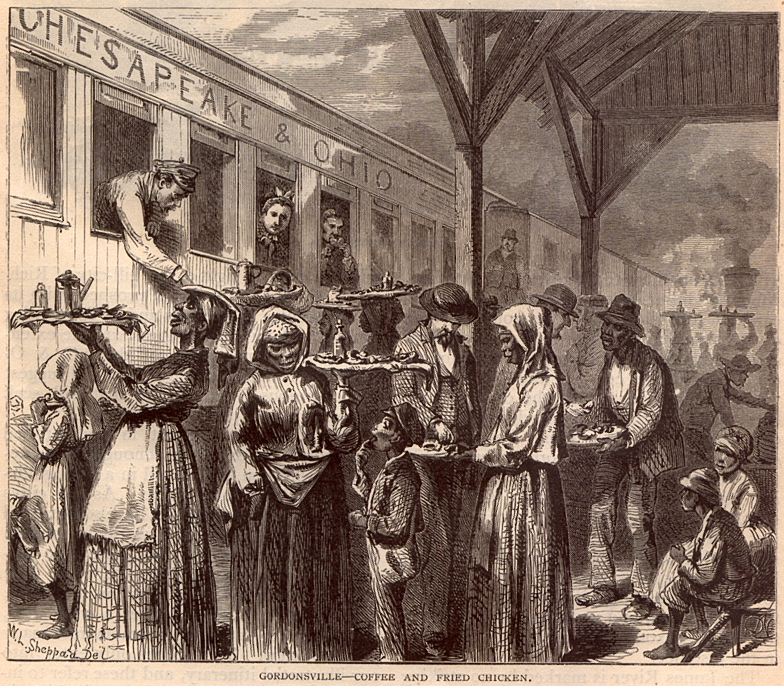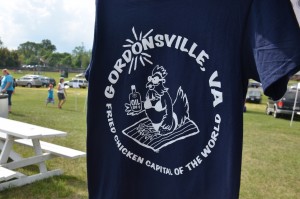Financial freedom is what many crave today because it is very liberating to be able to live comfortably without the hassle of over budgeting.
Imagine what life was like for the many African Americans after the Civil War in the 1800s. Slavery and racism were the African American’s enemy, especially during that era, but man had to survive.
To date fried chicken is associated with African Americans and sometimes they carry racial and derogatory undertones. It is through this same fried chicken that blacks were financially liberated at the time.

Photo: the Town of Gordonsville
The women came up with an ingenious way to make money by hawking fried chicken and other finger foods on the platforms of the railroad in Gordonsville, Virginia. The town through this trade became known as the “Fried Chicken Capital of the World.”
Two major rail lines made stops in the town when the Civil War broke out and it was a main stop through which produce from Virginia’s Shenandoah Valley got to its consumers, NPR reports.
The women took advantage of the lack of dining cars on the trains to expand their trade. Hungry passengers would give anything to have some fried chicken, pies, biscuits and other goodies sold by these hardworking women.
The vendors became known as waiter carriers who trekked miles to the train station to sell the goods through the open windows of the trains to the commuters.
Soon the women were hailed for their impeccable culinary skills by many, according to Psyche Williams-Forson, an associate professor of American Studies at the University of Maryland.
“Some people would deliberately chart their way through Gordonsville because they knew they would encounter these women and those particular foodstuffs,” Williams-Forson tells the reporter.
“Indeed, one of the first cookbooks published by a black woman in America was put out by an ex-slave woman in 1881”, NPR reports.

The entrepreneurial heritage of these African American women was rightly captured by Williams-Forson in his book Building Houses Out of Chicken Legs: Black Women, Food and Power. He reiterates how fried chicken was instrumental in empowering the people after the Civil War.
“I think it’s important to talk about it, because it reflects some level of agency that some African-Americans were able to exhibit during that horrible institution,” Williams -Forson writes, emphasising the need to voice the achievement of the women because there are not many records on Gordonsville’ fried chicken vendors.
In a 1970 newspaper interview, Bella Winston, a former waiter carrier who was 80 years old at the time said she learnt the trade from her mum. She said, “My mother paid for this place with chicken legs.”
A testament to the depth of economic empowerment and independence gained by the waiter carriers who wouldn’t have had any form of financial liberation if not for the trade. Some even bought their freedom through their cooking skills.
“At the end of the Civil War, when we have new freedoms for people, they’re put in a position where they need jobs,” says Coiner, Mayor of Gordonsville, whose family has lived in Gordonsville for many generations.
“The situation was bad before, but you could count on the situation. Now it was a big unknown.”
Even black people who were employed by white restaurateurs endured all sorts of mockery.
“Back in those days … it wasn’t nothing to see [such] mockery. Black folks was always being mocked,” former headwaiter Roy Hawkins recalls his experience in Williams-Forson’s book.
Hawkins worked in ‘To wit: the Coon Chicken Inn’, a restaurant chain that started in Salt Lake City, Utah, in 1925 which was frequented by many for its fried chicken.
He stomached a lot of racial abuse, but the job was very profitable. His tips were as high as $100 to $200 a night. Whereas bricklayers made meagre $5 a day. In 2006 he told The Salt Lake Tribune that despite his ordeal at the restaurant, he was “laughing all the way to the bank.”
The waiter carriers of Gordonsville’s trade sadly came to an end with the introduction of dining cars on trains in the early 1900s.

Not even the government crackdown on them could blot out their legacy from the history of Gordonsville.
To honor their resilience, Gordonville Virginia, “Fried Chicken Capital of the World” organizes an annual fried chicken contest to honor the waiter careers.










